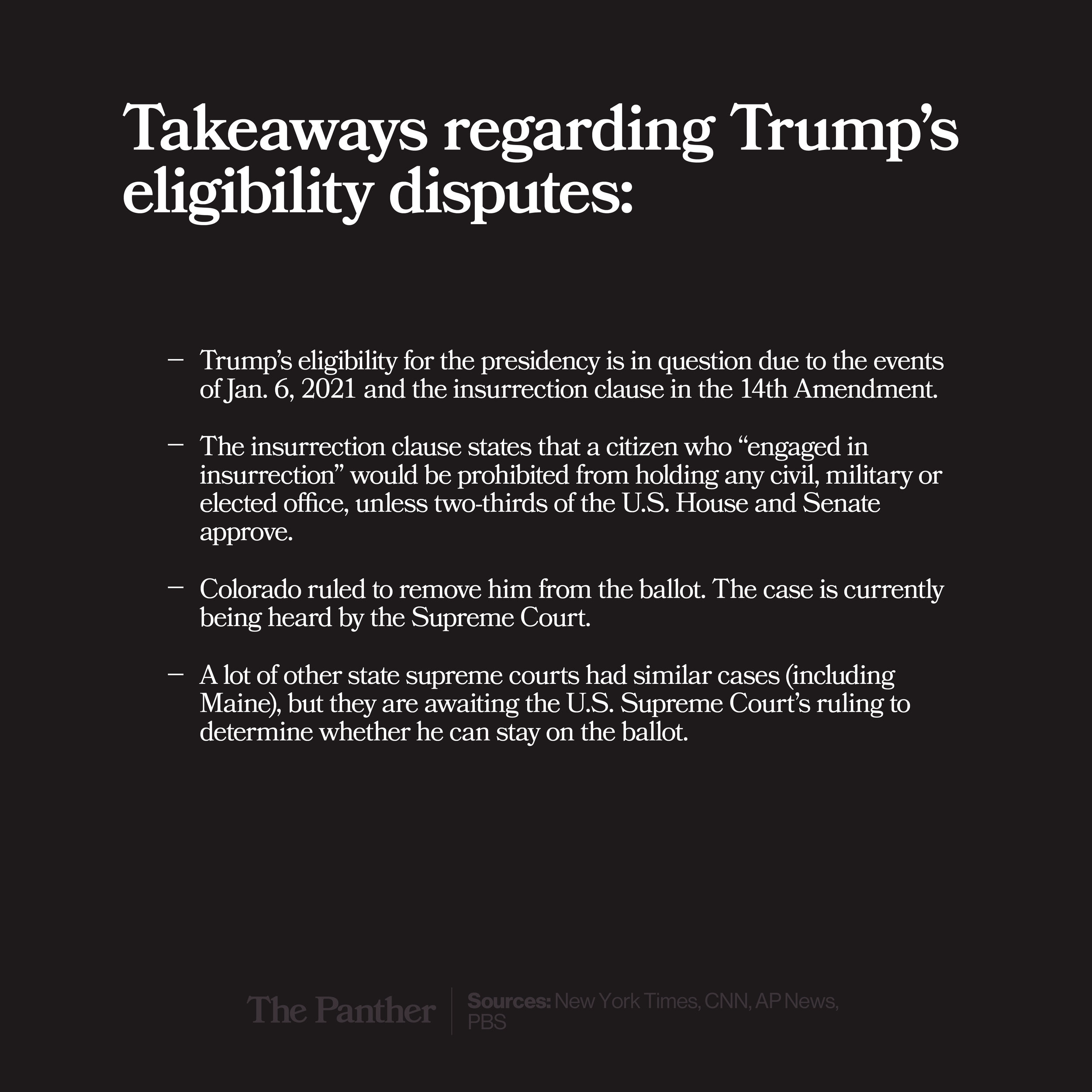How Trump’s eligibility issues are playing out in each state
Former president Donald Trump has been disqualified from the primary presidential ballots in Colorado. Graphic by SUKHMAN SAHOTA, Art Director
In March 2022, Donald Trump became the first president in the history of the nation to get indicted. Later that year in November, Trump announced his candidacy for the 2024 presidential election.
As the United States grapples with the reality of a potential president who stands accused of attempting to overturn the 2020 presidential election, among other charges, some states have filed with the Supreme Court to formally question Trump’s ballot eligibility.
Last December, the Colorado Supreme Court ruled to disqualify Trump from the 2024 presidential primary ballot, citing Section three of the 14th Amendment. The section states the following:
Section 3, 14th Amendment (U.S. Constitution):
“No person shall be a Senator or Representative in Congress, or elector of President and Vice-President, or hold any office, civil or military, under the United States, or under any State, who, having previously taken an oath, as a member of Congress, or as an officer of the United States, or as a member of any State legislature, or as an executive or judicial officer of any State, to support the Constitution of the United States, shall have engaged in insurrection or rebellion against the same, or given aid or comfort to the enemies thereof. But Congress may by a vote of two-thirds of each House, remove such disability.”
Section three has been invoked in connection to the House Selection Committee’s 2022 vote which asserts that Trump did inspire an insurrection in the storming of the Capitol, subsequently leading to the criminal referral of the case to the Justice Department.
“Section three absolutely applies to the former president as he breached his duty to protect his nation as the head of state and government,” said Isabelle Killough, a freshman political science major at Chapman University.
Killough continued: “If the United States disqualifies local or government officers for having a criminal record, then the same rule should apply for someone running for presidency. I think the American people will recognize this.”
Experts across the ideological spectrum argue that a criminal conviction in the Washington case is not required to constitutionally disqualify Trump from the presidency. However, Section three has not been cited since 1919, so the application of the 14th Amendment in the case is being thoroughly debated in academic and legal circles.
Since the Colorado ruling, at least 35 states have filed to contest Trump’s eligibility for holding the office of U.S. President.
On Jan. 5, the Supreme Court agreed to hear Trump’s appeal of the Colorado decision (Trump v. Anderson). Thus far, Trump has been disqualified from the primary ballot in Colorado, and similar steps have been taken in Maine. However, the judge in the Maine case has deferred ruling on the matter until after the Supreme Court rules on the Colorado case.
The formal challenge of Trump’s eligibility in other states has either been dismissed by their state Supreme Courts or is in the process of awaiting the decision of the Colorado appeal case.
The U.S. Supreme Court began hearing oral arguments for Trump’s eligibility on Feb. 8. Experts argue that the court is likely to keep Trump on the ballot for a variety of reasons, especially given the significant political implications of declaring him ineligible for the presidency.

